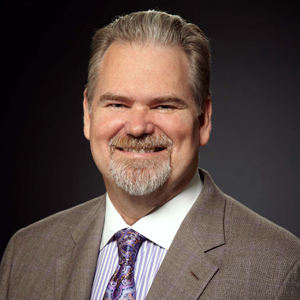Research Affiliates rolls out Australasian expansion
Research Affiliates, the company which some folks think invented smart beta, even though they didn’t call it that back then, is expanding in Australasia. But its founder, Rob Arnott, is pre-occupied at the moment. Research Affiliates (RA) spends a lot of time looking at risks. And there’s a big one happening at the moment.
Arnott, who, like a lot of fund managers, was due to come to Australia last week, said by phone that he believed that while “there will be a scramble over the next two-three weeks, I’m expecting that things will be back to normal by mid-year.” Let’s hope he’s right.
“We are building out our presence in Australia,” he said. The firm is going direct to clients in Australia and New Zealand now, having previously used other fund managers – the main one being Realindex owned by the former Colonial First State Global Asset Management (now known as First Sentier Investors).
RA set up an office in Melbourne in 2018, redeploying Australian-born Mike Aked as its head of country. It employed another Australian-born representative as its head of sales and marketing, Adam Willis, in August last year. Based in Sydney, he is a former head of sales at Legal & General in the UK and before that at MSCI.
While its relationship with First Sentier is coming to an end, RA is still close to Parametric. Parametric is a specialist implementation manager which prides itself on cost efficiency and tax-effective management. Parametric implements a range of RA strategies around the world. They are both US west coast companies. Maybe that helps. RA is based in Newport Beach and Parametric is based in Seattle. You’d want to be in Newport Beach, wouldn’t you?
Arnott, RA’s chair, invented the ‘RAFI’ index (Research Affiliates Fundamental Index) to launch RA in 2002. The firm, which now has about US$200 billion under management, was granted a patent for the index in 2009. With his wife, Marina, an abstract impressionist artist, Arnott is now a generous benefactor to various charities. And he remains a prolific writer. He has had published more than 100 academic papers in the past 20-odd years.
Most recently, he is pre-occupied with the coronavirus, as all of us are. He wrote late last month: “The market is responding to a risk unlike any we’ve dealt with in recent decades. This crisis is not 9/11, though it may feel like we’re under attack. And this crisis is not 2008, although our financial markets entered 2020 with substantial cracks and weaknesses. While days like yesterday [March 16] (and a few before that) aren’t common, they come around with sufficient frequency that I’ve seen a few before: October 1987, 9/11, and, of course, the most volatile days of the global financial crisis all come to mind.
“But whereas I’ve seen market and economic crises over the four decades I have been in this business, this crisis is evolving faster than any in my lifetime… Although the tendency is to try to forecast the future, nowcasting is a real danger. This crisis is evolving too rapidly. Nowcasting can lead us astray because events are still unfolding. Today’s numbers will quickly become quaint as the number of cases of COVID-19 rises around the world. Today’s ‘now’ is the tip of the iceberg-so don’t get anchored to it. Later, after a period of serious challenges, we will begin to see progress, and the economy will eventually emerge from this nuclear winter, though there will be sector impairments, bankruptcies, and so on. As always, the time to buy is when we’re at “peak fear.”
He said: “A lot of bad news is coming at us, with some dangerous times ahead, but as fear peaks in the weeks to come, the time will also come when bargains make themselves obvious to the naked eye of the disciplined investor. The window of opportunity as always will be short, but highly rewarding over the longer term.”
Some of the unintended consequences of coronavirus include the shuttering of the world’s economies, followed by a government bail-out. Everyone is suffering economic pain, Arnott said.
“Instead of directly confronting the cause of pandemic spread of COVID-19, we are inflicting vast damage to great swathes of the economy, likely bankrupting millions of small businesses, which we then seek to fix with massive fiscal and monetary stimulus. The health of the economy is no more important than the health of the citizenry,” he said in a separate recent note to clients.
“However, the two are interconnected. You can’t crush the economy without exacting a human toll. Of course, as John Tamny has observed, if we bail out everyone, we bail out no one. Stimulus can only bolster economic activity when slack resources – including the newly unemployed – can be put back to work, to produce goods and services. The unintended consequences of current policies are vast, in both human and economic terms. In a 2018 academic article, Yu-Hui Lin and Wen-Yi Chen showed a direct link between unemployment and suicide, a link that lingers for 2-3 years after unemployment has retreated. So, even a short, sharp recession has lasting consequences. In very rough terms, each 1 per cent rise in unemployment leads to 1 additional suicide for each 100,000 people, and a rise in divorces of up to 1 per cent. If unemployment jumps by 5 per cent in the current shutdown of the US economy, that means around 16,500 additional suicides and up to 3 million divorces.”
– G.B.











